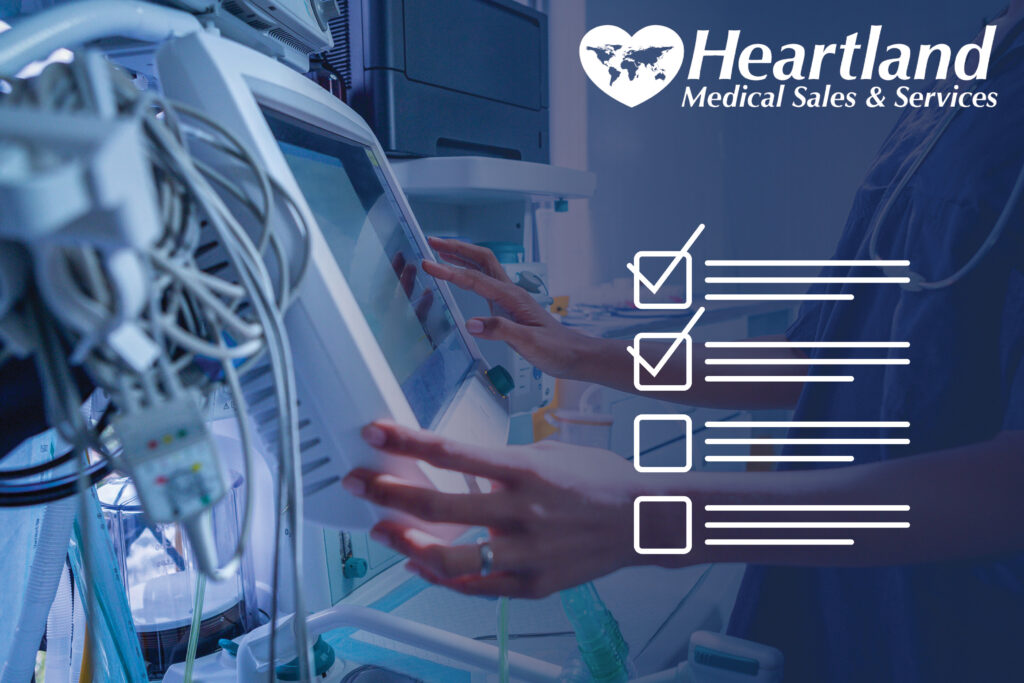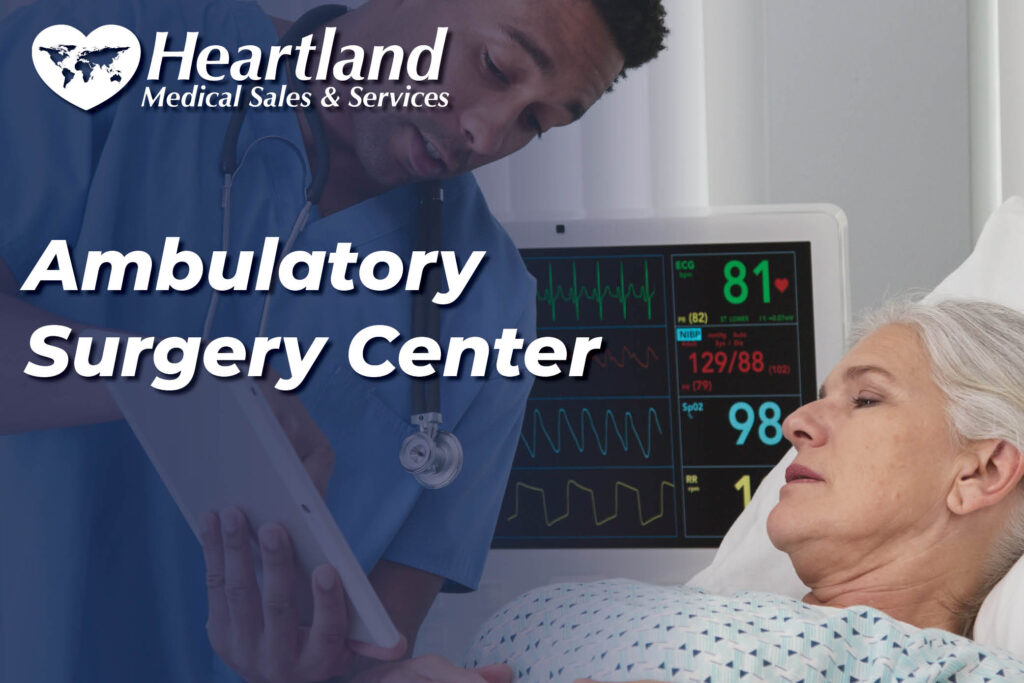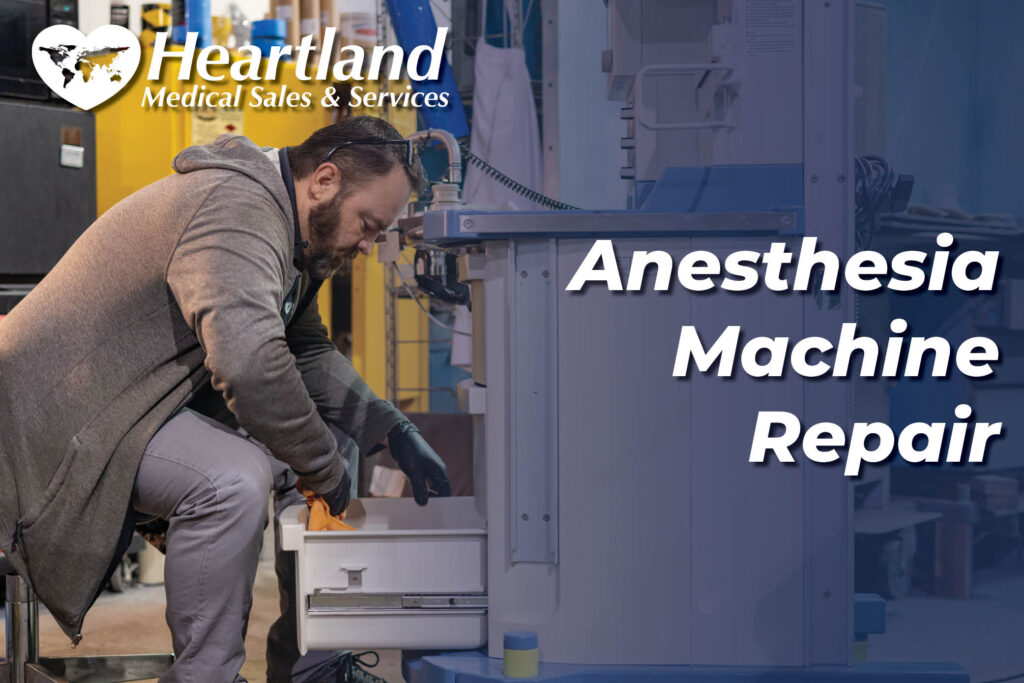If you work in a hospital or the medical industry, you are sure to be familiar with many of the different types of devices and machines used in hospitals.
Certain crucial pieces of equipment are necessary to ensure that patients obtain comprehensive care. Below is a standard list of medical equipment that all medical facilities should have on hand.
Anesthesia Machines
An anesthesia machine is used by anesthesiologists to efficiently and safely administer general anesthesia to patients to prevent pain and discomfort or induce sleep during medical procedures.
The anesthesia machine delivers a continuous and controlled composition of gases such as nitrous oxide and oxygen and general anesthetic to the patient. Today’s anesthesia machines include ventilators, suction units, and patient monitors that provide heart rate and oxygen saturation level data.
Defibrillators
A defibrillator is a medical device commonly used for life-threatening circumstances that affect the heart’s rhythm, for instance, cardiac arrhythmia, ventricular fibrillation, or ventricular tachycardia. A defibrillator will deliver an electric current to the heart, essentially an electric shock restoring normal rhythm. They are a key piece of medical equipment and one of the few designed for use by non-medical personnel.
Electrosurgical Units
An electrosurgical unit or ESU uses a high-powered, high-frequency generator to cut tissue and control bleeding by coagulation (hemostasis). Typically, it is used during surgery to limit blood loss, decrease blood flow to a specific area, or remove damaged or diseased tissue.
The ESU comprises two parts an electrosurgical generator and a handpiece or footswitch that includes one to several electrodes. An ESU is commonly used in such medical procedures as cardiac, dental, dermatological, gynecological, ocular, and plastic surgery.
EKG Machines
An Electrocardiogram machine or EKG or ECG machine (both acronyms can be used interchangeably) records the heart’s electrical activity in graph format and displays it electronically on a screen. Electrode patches are attached to the skin of the patient, and the heart rhythm is monitored.
It is used to detect abnormalities such as Ischemia (inadequate blood flow to the heart muscle), Arrhythmias (heart rhythm irregularities), or an unusually fast or slow heartbeat.
Endoscopy Equipment
An endoscopy involves the insertion of an endoscope, which is a flexible tube with a camera on the end into the body. It can be inserted via an opening in the body such as the mouth or a small incision, for instance, in the stomach, to view internal organs and tissues in the body.
The specialized endoscopy equipment allows a doctor to see issues within a body without making major incisions. It can be used for diagnosis, investigation, and some types of treatment.
As the process of endoscopy can’t be achieved without an endoscope, it is the most important piece of equipment needed. However, other endoscopy equipment and tools are also required, such as endo cabinets and carts, imaging equipment, and video monitors. Specific endoscopes are needed depending on the area of the body that is being analyzed.
Patient Monitors
A patient monitor is an item of medical equipment used by healthcare staff to measure a patient’s vital signs. This includes body temperature, heart rate, blood pressure, respiratory rate, SPO2, and more. Patient monitors are used to measure and record neonatal, pediatric, and adult patients’ vital signs. The patient monitor comprises a display screen, processing components, and monitoring sensors.
Respiratory Ventilators
A ventilator is a machine designed to help pass oxygen in and out the lungs. The oxygen is pumped through a tube that goes from the mouth down the windpipe. The ventilator is classed as a life-critical system. It is used for patients with a wide range of conditions that cause them difficulty breathing independently. A patient also may need a respiratory ventilator during or for a period of time after surgery.
Sterilizers
Steam sterilizers, also known as autoclaves, are an important medical device used to sterilize surgical tools and other items. It uses pressurized steam to kill bacteria, fungi, spores, and viruses, or other harmful bodies present on medical equipment.
Stretchers
A stretcher is a medical device for moving patients who cannot move by themselves to another location. Medical facilities can’t do without this medical equipment if they want to transport patients safely and comfortably.
Surgical Lights
Surgical lights, also called operating lights, are medical equipment devices that are specifically designed to illuminate the operating area during surgery. Modern surgical lights come in several different types and sizes. They also have many features to choose from, such as high illumination, shadow reduction, focus and intensity control, and other functionality.
Surgical Tables
Surgical tables or operating tables typically come in different types; there are general surgical tables and specialized ones such as orthopedic, bariatric, and radiographic. Surgical tables can be operated manually, hydraulically, and by remote control. Which surgical table is needed will depend on the procedure that is to be carried out. A general surgical table is adaptable and can be used for a wide range of procedures.
Ultrasound Equipment
Ultrasound machines use high-frequency sound waves to transmit images of a patient’s internal organs to a computer screen. The most common use for ultrasound imaging is in pregnancy and is used by obstetricians to examine a pregnant woman to check the baby’s position, heartbeat, and growth. It can also be used to check for other health issues such as diagnosing heart problems or examining internal organs such as the kidneys, bladder, gallbladder, and pancreas.
If you are considering purchasing new or refurbished medical equipment, please contact us at Heartland Medical to discuss your options.
"*" indicates required fields




